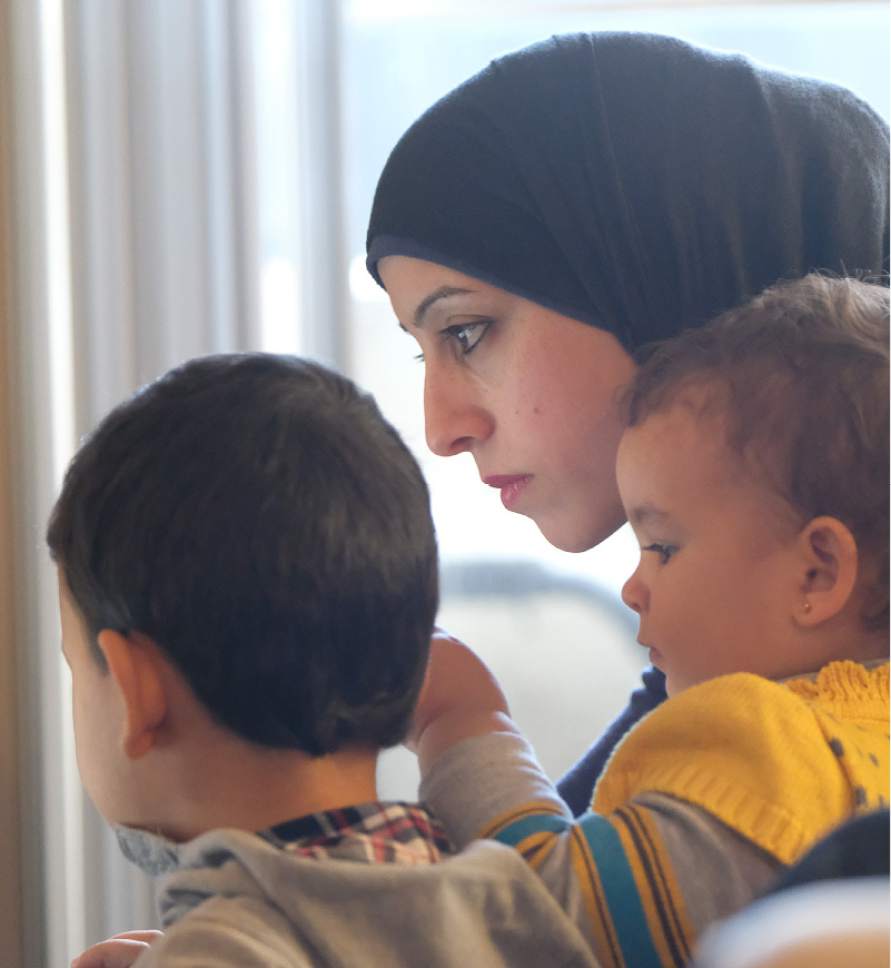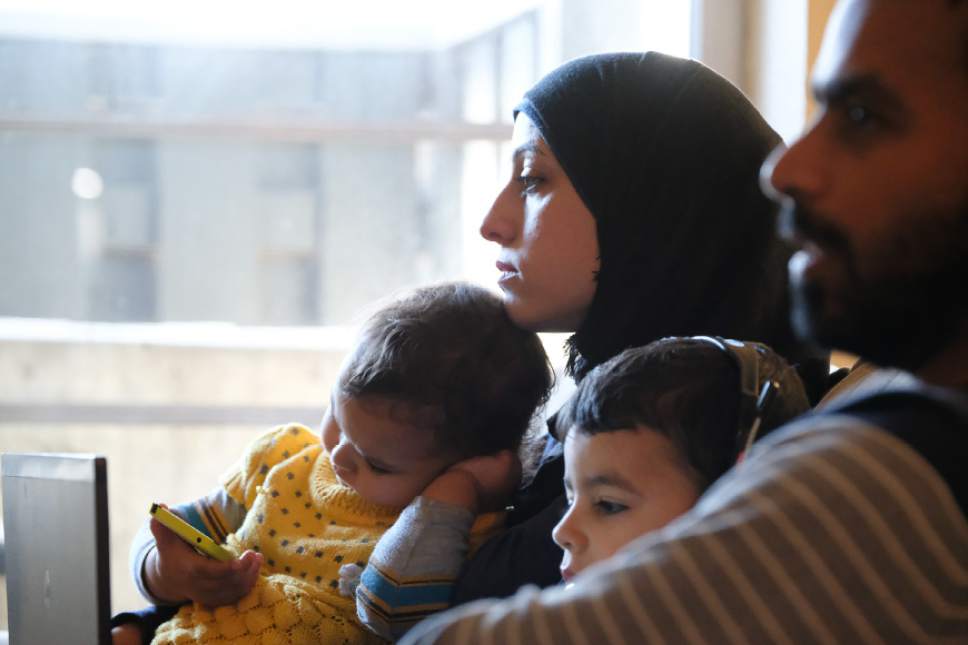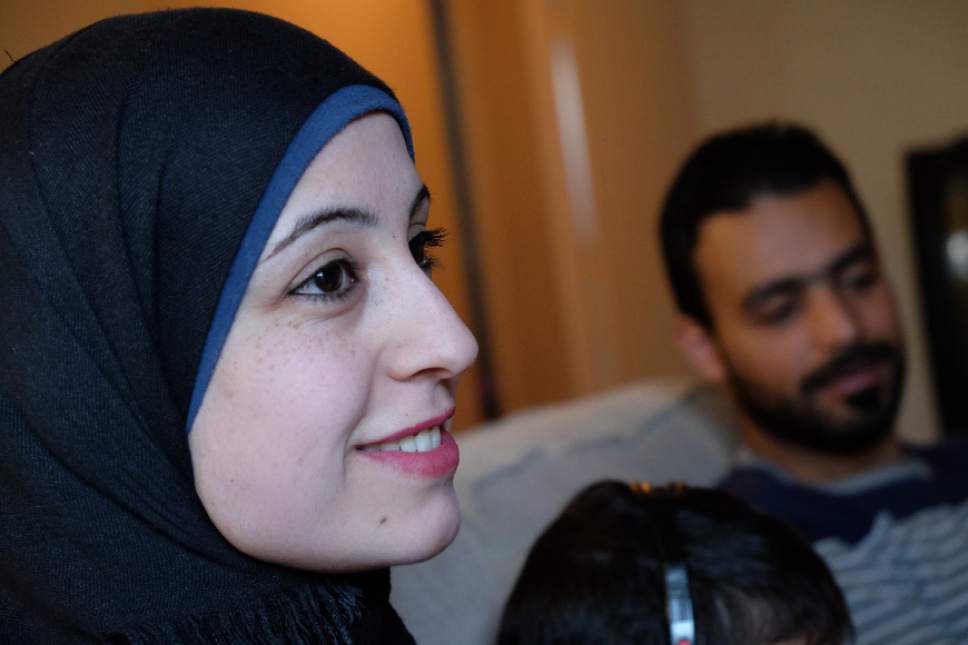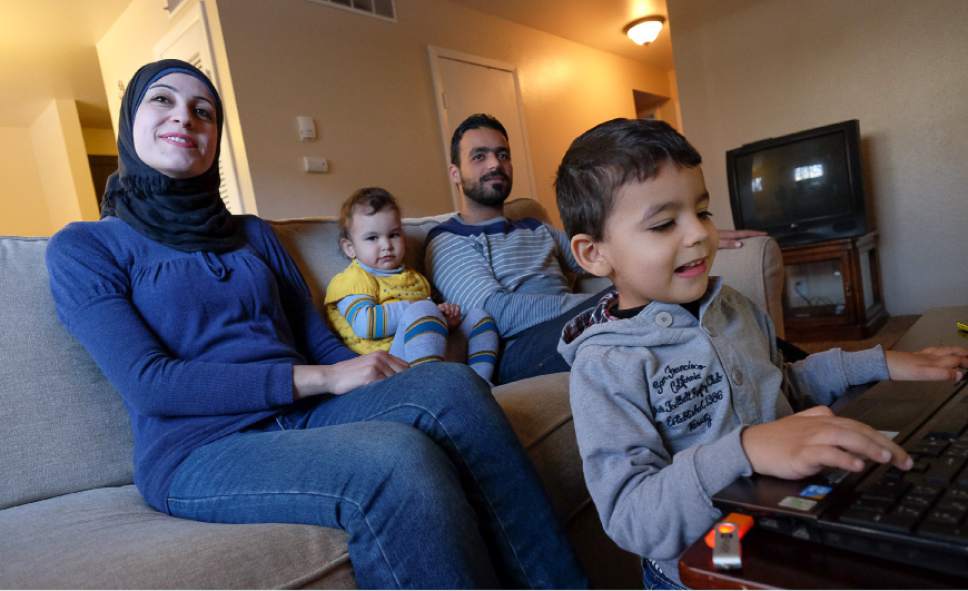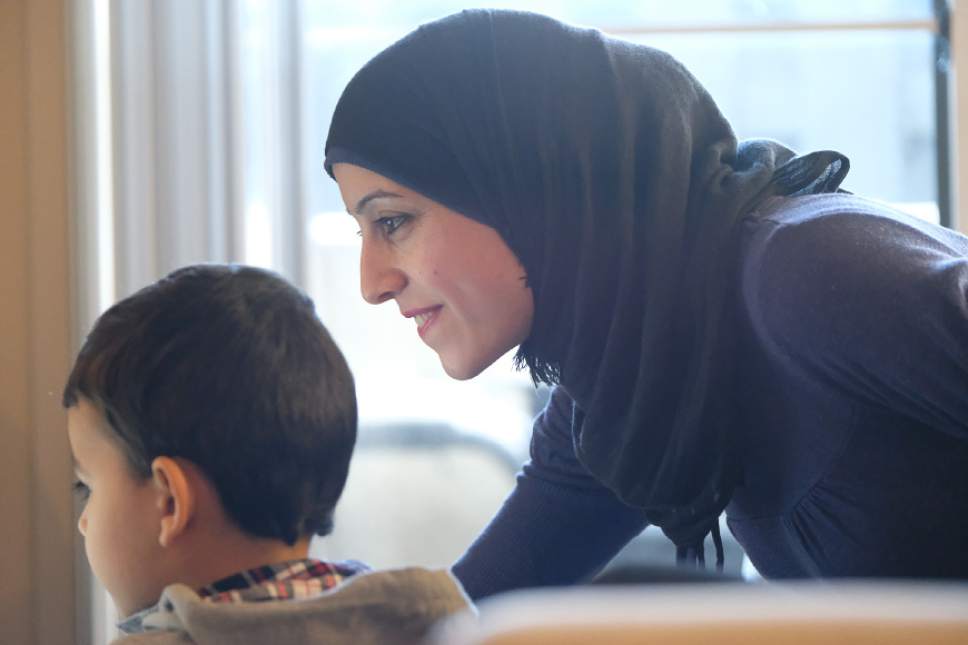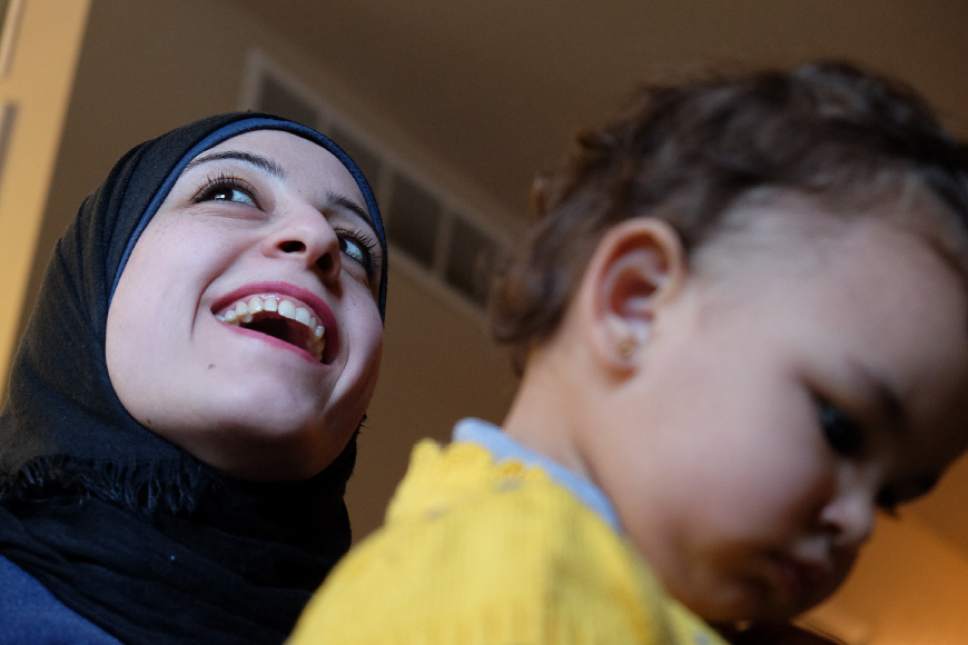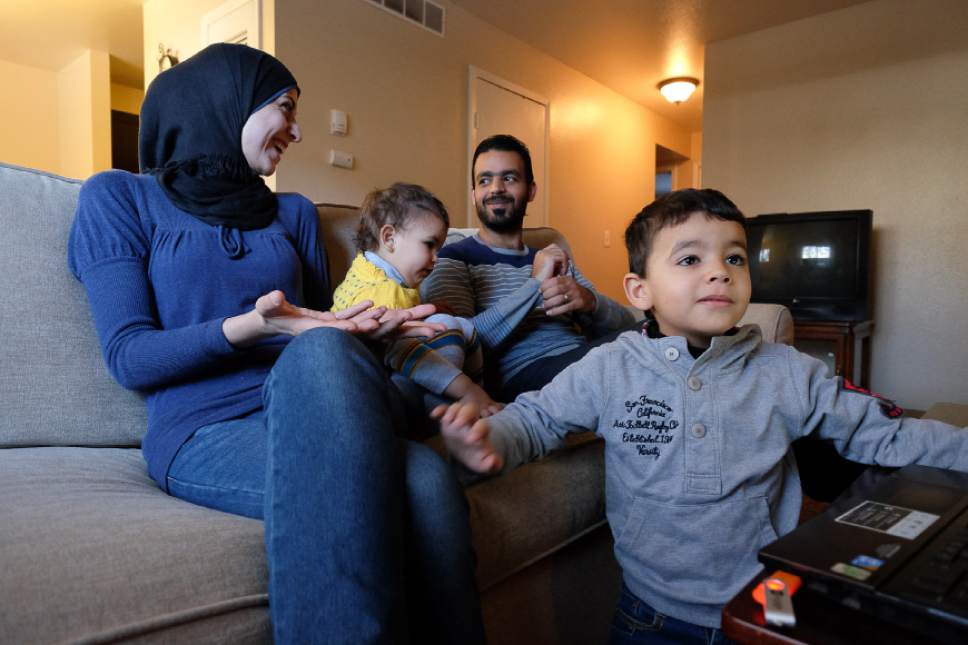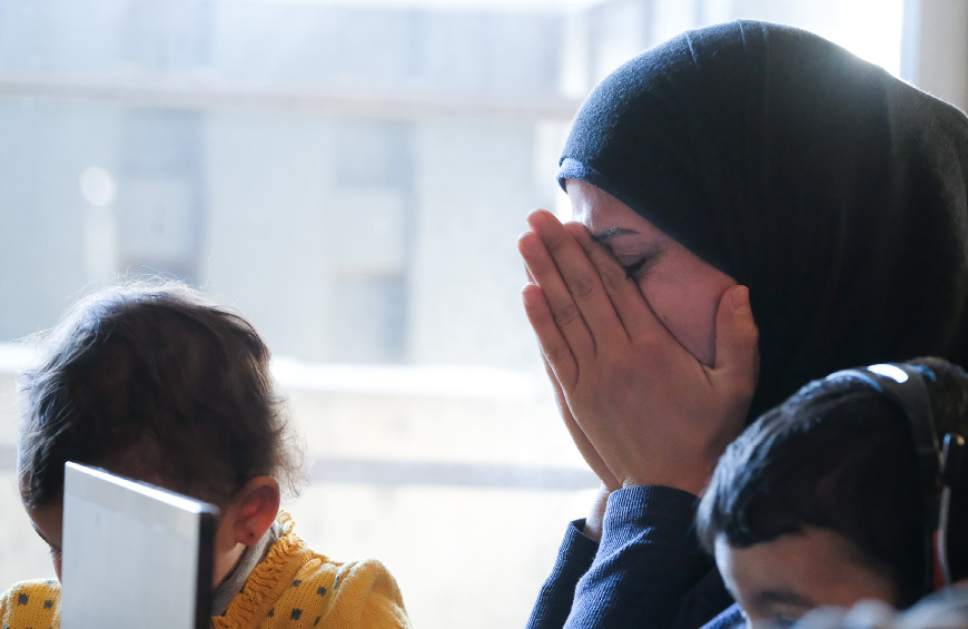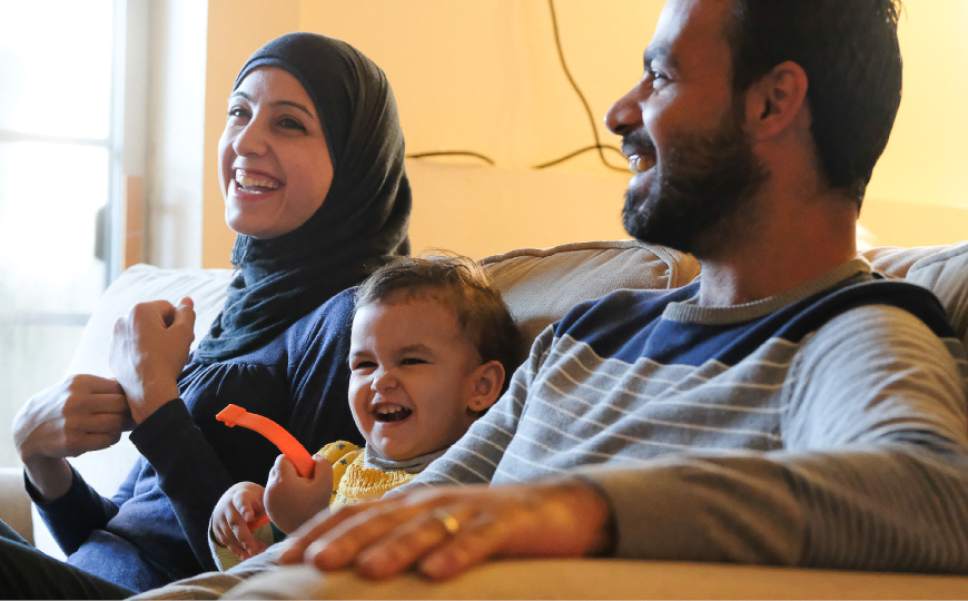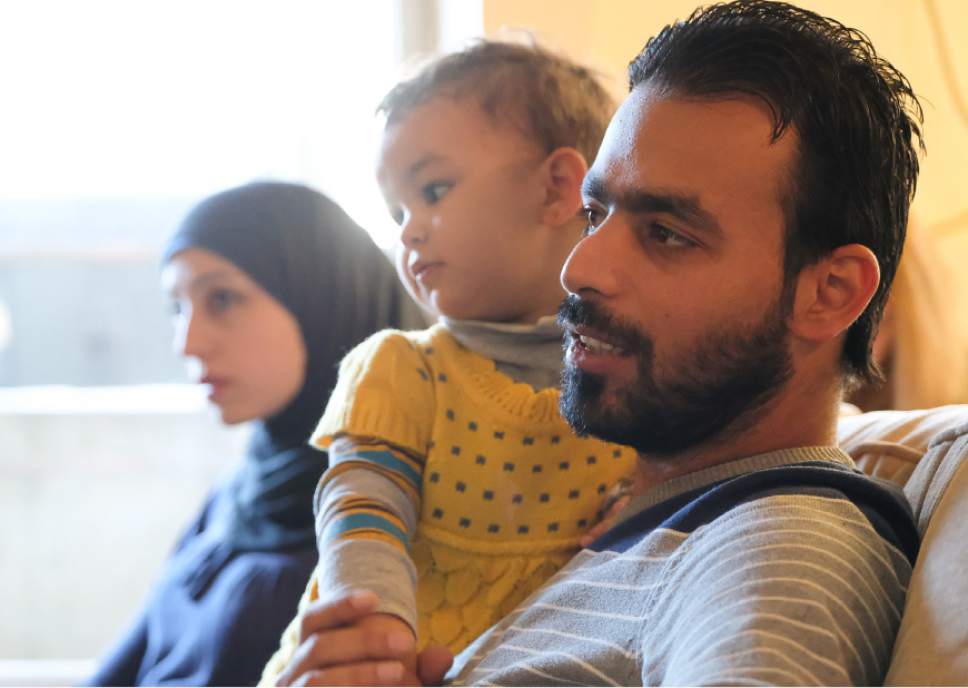This is an archived article that was published on sltrib.com in 2017, and information in the article may be outdated. It is provided only for personal research purposes and may not be reprinted.
The snow is deep, and the air is bitter cold, but Ali Mohammad Al Soufani, 30, and his young family couldn't be happier to be in Utah.
They arrived in Murray on Dec. 23 from Jordan, where they lived for more than three years after fleeing the war in their native Syria. They dreamed of coming to the United States, Al Soufani said, because it's the best country in the world and will provide opportunities for their children.
Al Soufani hopes President-elect Donald Trump will change his mind about Muslims and Syrians.
"We hesitated to come to the United States because of Donald Trump," he said. "Trump says, 'Deport Syrians.' It makes us scared. But we hope the American people aren't like that."
"We are afraid of Donald Trump," added his wife, Rasha Ismaeel Al Kilani, 29.
But she is quick to add that they have been treated well since arriving in America.
"People were smiling at us, and they are friendly," she said. "We feel we are in good hands."
Although they know some English, they spoke to The Salt Lake Tribune with the aid of an interpreter, Khalid Al Hachami, their caseworker from Catholic Community Services, which sponsors them.
Al Soufani taught Information Systems and Technology (IT) at a college in Damascus. But when the shooting started and the bombs began to fall, he knew he had to get his wife and infant son, Mohammad Ali Al Soufani, who is now 4, out of Syria.
Reflecting on the war brings a pained look to his face. The victims of the war, he said, are largely women and children and innocent civilians.
"Government soldiers were killing everyone," Al Soufani said.
On April 23, 2016, the United Nations and Arab League Envoy to Syria put out an estimate of 400,000 that had died in the war. Since then, thousands more have been killed.
Fleeing the war-torn country was no easy task for the Al Soufanis. Checkpoints were everywhere, he recalled. But friends and acquaintances somehow were able to smuggle them over the Jordanian border May 2, 2013.
Al Soufani's extended family eventually fled to Lebanon. But Al Kilani's mother and sister remain in Syria — a thought that brings tears and grief.
The young family plopped down in a refugee camp for a brief period. Fortunately, Al Soufani had saved some money and had a friend in Jordan who had earlier fled Syria.
Ultimately, they were able to rent a small apartment. Al Soufani did not have a visa that would allow him to work legally. He nonetheless hustled to find jobs under the table. He did a variety of work here and there, including fixing computers and cellphones.
They applied for refugee status and waited.
And waited.
And waited.
It took almost four years for the paperwork to clear. Security checks were part of the application.
By then, the family had grown to four. Sima Ali Mohammed Al Soufani, now 22 months, was born in Jordan.
Looking back on life in Syria before the war, the couple recall a simplistic but beautiful life. Family and friends were close and the joy of living was all around them.
They now live in a modest but well-kept apartment complex in Murray, thanks to Catholic Community Services. It is furnished by donations to the charity that also will pay their rent for up to one year.
They are thankful and are comfortable in their new home, Al Soufani said.
Already, they have met others from the refugee community and say they look forward to meeting more Utahns.
"We like to engage with different people," Al Kalani said, "not necessarily Muslims."
Their American dream doesn't center on a big house and big cars. Rather, it is focused on their children's education and the hope that the youngsters will dedicate their lives to helping people.
That will come in time. Right now, the whole things seems a little unreal, the couple said. "I don't believe I'm here in the U.S.," Al Soufani said.
Al Kilani added, "It's a dream for me right now."
The couple said they will put down roots in Utah. Their children will soon become bilingual. But, Al Kilani noted, Arabic will be spoken in the household so that one day they will be able to visit their in-laws in the Middle East.
The first order of business, however, is getting Social Security numbers. Al Soufani wants to begin working as soon as possible. In the long term, he hopes to return to education and IT. But, for now, he is willing to work at any job he can get — "to cover our expenses," he said.
Utah takes in some 1,200 refugees a year. But since Nov. 20, 2015, only 15 Syrian families have immigrated to the Beehive State, according to Catholic Community Services


